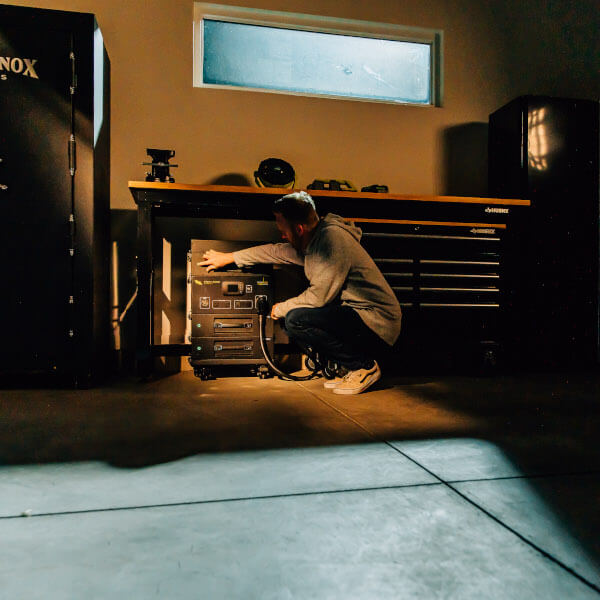Solar power is becoming increasingly popular, as more and more people are becoming aware of the benefits of using clean, renewable energy. With the rise of portable solar power options like power stations and generators, people are now able to harness the power of the sun even when they’re off-grid. Point Zero Energy, a leading portable solar company in the US, offers a range of high-quality portable solar power products, including the Titan portable power station and 100 watt solar panels. In this article, we’ll explore the possibilities of what you can run with a 100-watt solar panel.
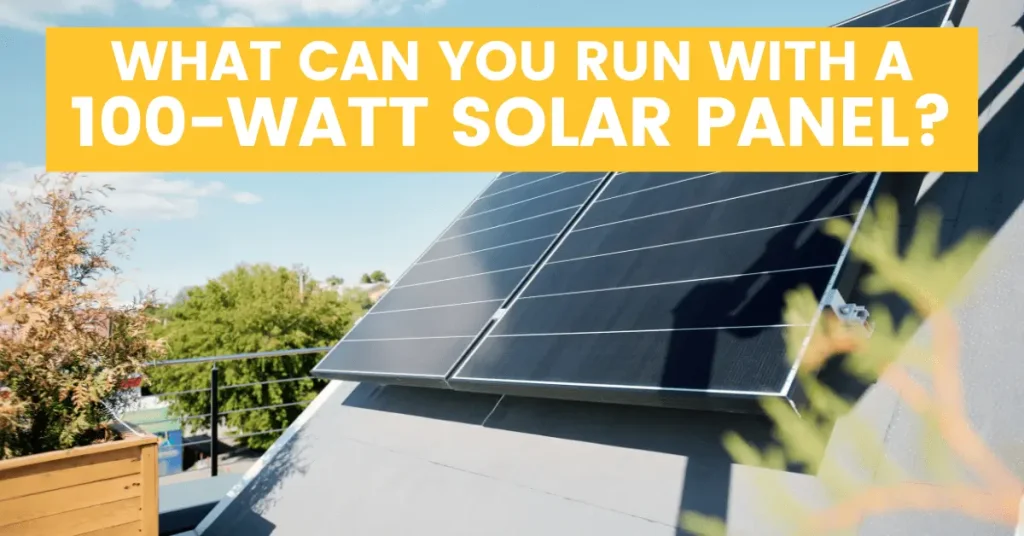
A 100-watt solar panel is an essential component of a solar power system that can convert sunlight into electrical energy using photovoltaic cells. The photovoltaic cells inside the panel are made up of semiconducting materials, which absorb photons of sunlight and release electrons, generating electricity. The amount of electricity that can be produced by a 100-watt solar panel depends on various factors, including the intensity of sunlight, temperature, humidity, and the angle of the sun’s rays.
The amount of energy a 100-watt solar panel generates per day can vary depending on how much sunlight it receives. Generally, you can expect a range of 300-600 watt-hours of power from a 100-watt solar panel, which is enough to power various electronic devices like phones, laptops, and lights. The number of peak sun hours, which is the amount of time when the sun is at its highest intensity, plays a significant role in determining the energy output of the solar panel. So, the more peak sun hours your location receives, the more power your 100-watt solar panel will produce.
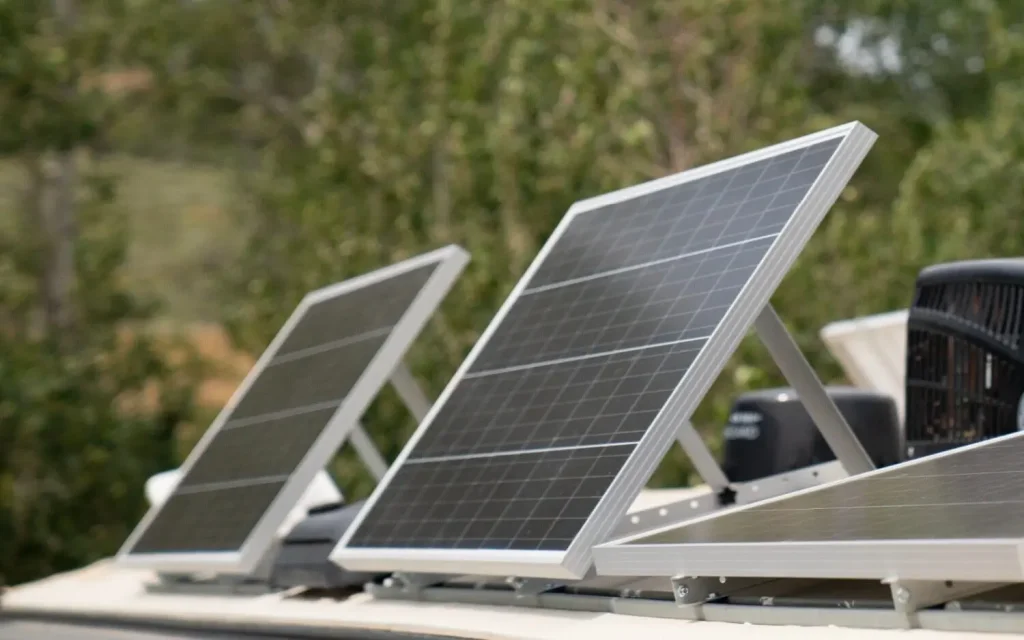
In order to fully comprehend the potential of solar panels, it is crucial to have a grasp on some important technical terms. Let’s take a moment to dive into the critical concepts of amps, volts, power, and energy.
Amps, or amperes, are a unit of electrical current. They measure the flow of electrons in a circuit and are often used to describe the capacity of electrical devices or systems. Amps are a way to measure how much electricity is flowing through something, like a light bulb or a computer. They are like the amount of water flowing through a hose.
Volts are a unit of electrical potential difference, or voltage. They measure the force that drives electrons through a circuit and are often used to describe the power of electrical devices or systems. Volts are a way to measure how much power is needed to make something work. They are like the pressure in a hose that makes the water flow.
Watts (W) is a unit of power that measures the rate at which energy is transferred or used. It is often used to measure the output or consumption of electricity. For example, a light bulb might use 60 watts of power, which means it consumes 60 watts of electricity per hour.
A watt-hour (Wh) is a unit of energy that measures the amount of electricity used over time. It is calculated by multiplying the number of watts used by the number of hours of use. For example, if you use a light bulb that consumes 60 watts for 2 hours, it will use 120 watt-hours of energy.
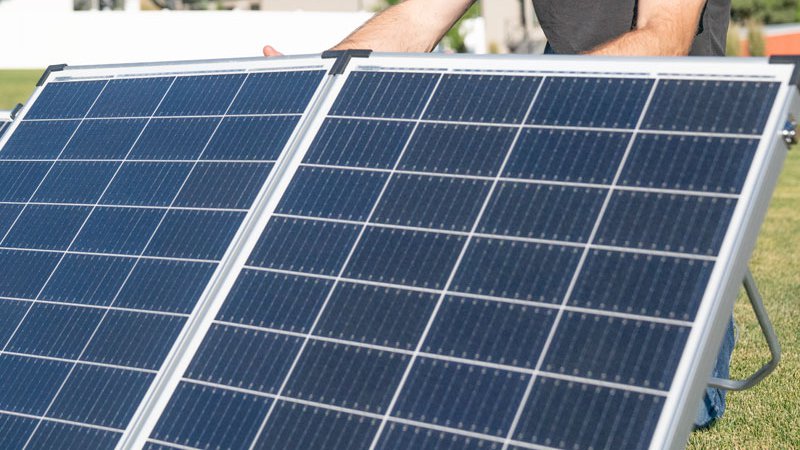
A 100-watt solar panel is a great option for powering small to medium-sized devices, both indoors and outdoors. Here are some examples of what a 100-watt solar panel can power:
While this is not an exhaustive compilation, it provides a glimpse of the potential of a 100-watt solar panel to generate electricity. Overall, a 100-watt solar panel offers a convenient and eco-friendly way to power a wide range of small devices and appliances, making it a valuable addition to any home or outdoor adventure.
Are you looking for a solar panel that is built to last? Look no further than the Point Zero Energy 100W Rigid Panel. Our panels are designed with the highest efficiency in the industry, making them perfect for permanent installations. Whether you are setting up an off-grid system for your home, cabin, or RV, our panels will provide you with reliable power for years to come.
One of the key features of our 100W Rigid Panel is the use of Grade A monocrystalline solar cells. This ensures that the panel produces optimal efficiency, meaning that you get the most power possible from the sunlight that hits your panel. In addition to the high-efficiency solar cells, our panels feature an innovative 9-busbar solar configuration design. This design maximizes solar output, so you get more power from each panel.
Our rigid panels are built to withstand even the toughest conditions. The aluminum frame is corrosion-free, and the tempered glass is high transmission and anti-reflective. This means that your panel will continue to produce power even in harsh weather conditions. We’ve also added corner protection to the panel to ensure that it can withstand bumps and impacts during installation and use.
The maximum power output of the panel is 100 watts, with a maximum power voltage of 18.15 V and a maximum power current of 5.51 A. The open circuit voltage of the panel is 21.4 V. The panel dimensions are 39.2 X 21.25 X 1.4 in, and it weighs 13 lbs. Plus, our panels come with an impressive 25-year warranty, so you can trust that you are making a sound investment in your off-grid power system.
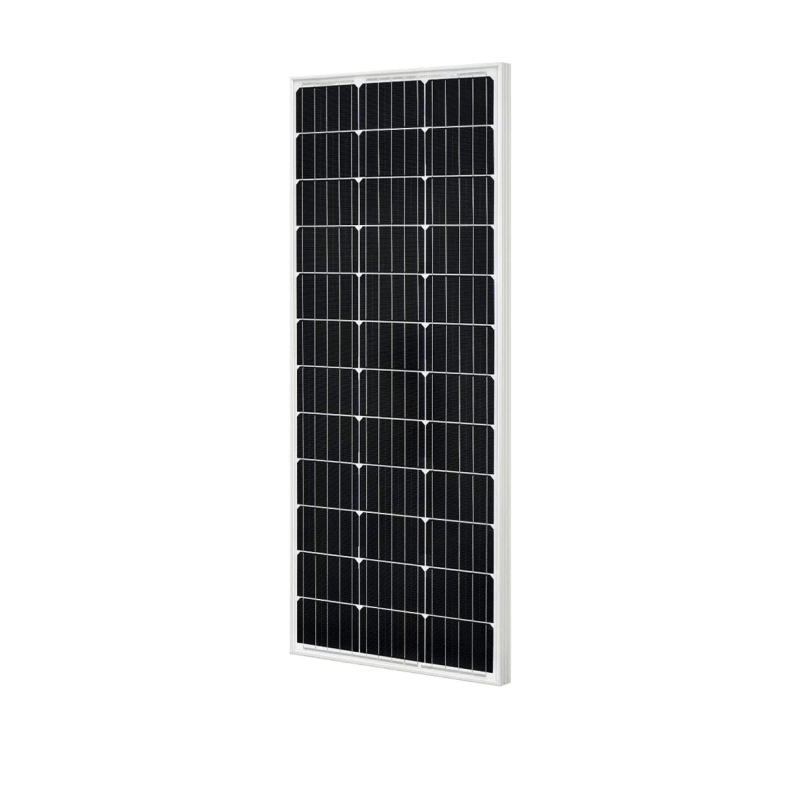
In summary, if you are looking for a solar panel that is built to last, look no further than the Point Zero Energy 100W Rigid Panel. With high-efficiency solar cells, innovative solar configuration design, and a durable aluminum frame and tempered glass, our panels are perfect for permanent installations. Plus, with waterproof connectors and a 25-year warranty, you can trust that your panel will provide reliable power for years to come.
A 100-watt solar panel is a versatile and powerful tool that can provide clean, renewable energy in a range of situations. Whether you’re camping, living off-grid, or just looking to reduce your carbon footprint, a 100-watt solar panel is a great option. With Point Zero Energy’s high-quality portable solar products, including the Titan portable power station and 100 watt solar panels, you can harness the power of the sun wherever you go.

